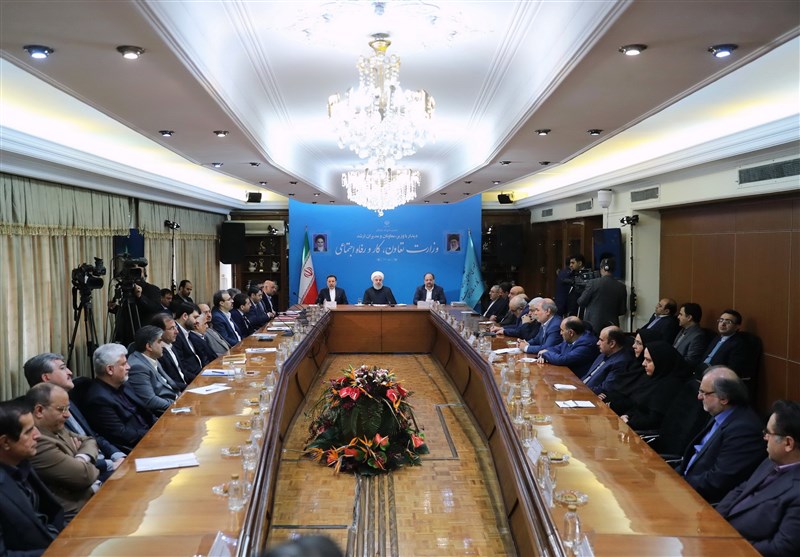
Iran’s President Unveils Plan to Increase Employment via Knowledge-Based Firms


“In the knowledge-based economy sector and the technology-based companies and start-ups, 300,000 jobs have been created, and we plan to add at least 100,000 jobs annually which would create a great movement in the society,” Rouhani said in a meeting with the Ministry of Cooperative, Labor and Social Welfare’s officials in Tehran on Monday.
Boasting about his administration’s success to combat unemployment over the past five and a half years, the president referred to unemployment as the root cause of social problems and crimes.
In the opening of a specialized pharmaceutical plant in Tehran in March 2018, Rouhani had assured the private sector of his administration’s support for knowledge-based projects and research activities contributing to national production.
“The administration will seriously support all private sectors in the field of production, particularly those doing knowledge-based activities and the activities on the basis of knowledge and research,” Rouhani said at the time.
In his Nowruz speech last year, Rouhani pledged that his administration will keep pursuing the policies to create jobs, support domestic products, combat poverty, stimulate investment, and support entrepreneurs in the new Iranian year.
In December 2018, Iranian First Vice-President Eshaq Jahangiri highlighted the administration’s continued support for the country’s knowledge-based companies, which he said should be actively present in foreign markets.
“Supporting knowledge-based companies and science and technology parks has been considered in both the next year’s budget (bill) and general policies,” Jahangiri said, adding that five scientific and technological corridors have been set up in five provinces of the country.
The first vice-president also called on the government organizations in charge of knowledge-based companies’ affairs to develop mechanisms and laws necessary to support knowledge-based companies and facilitate their activities.


Trump weighs using $2 billion in CHIPS Act funding for critical minerals

Codelco cuts 2025 copper forecast after El Teniente mine collapse

Electra converts debt, launches $30M raise to jumpstart stalled cobalt refinery

Barrick’s Reko Diq in line for $410M ADB backing

Abcourt readies Sleeping Giant mill to pour first gold since 2014

Nevada army depot to serve as base for first US strategic minerals stockpile

SQM boosts lithium supply plans as prices flick higher

Viridis unveils 200Mt initial reserve for Brazil rare earth project

Tailings could meet much of US critical mineral demand – study

Kyrgyzstan kicks off underground gold mining at Kumtor

Kyrgyzstan kicks off underground gold mining at Kumtor

KoBold Metals granted lithium exploration rights in Congo

Freeport Indonesia to wrap up Gresik plant repairs by early September

Energy Fuels soars on Vulcan Elements partnership

Northern Dynasty sticks to proposal in battle to lift Pebble mine veto

Giustra-backed mining firm teams up with informal miners in Colombia

Critical Metals signs agreement to supply rare earth to US government-funded facility

China extends rare earth controls to imported material

Galan Lithium proceeds with $13M financing for Argentina project

Kyrgyzstan kicks off underground gold mining at Kumtor

Freeport Indonesia to wrap up Gresik plant repairs by early September

Energy Fuels soars on Vulcan Elements partnership

Northern Dynasty sticks to proposal in battle to lift Pebble mine veto

Giustra-backed mining firm teams up with informal miners in Colombia

Critical Metals signs agreement to supply rare earth to US government-funded facility

China extends rare earth controls to imported material

Galan Lithium proceeds with $13M financing for Argentina project

Silver price touches $39 as market weighs rate cut outlook

















